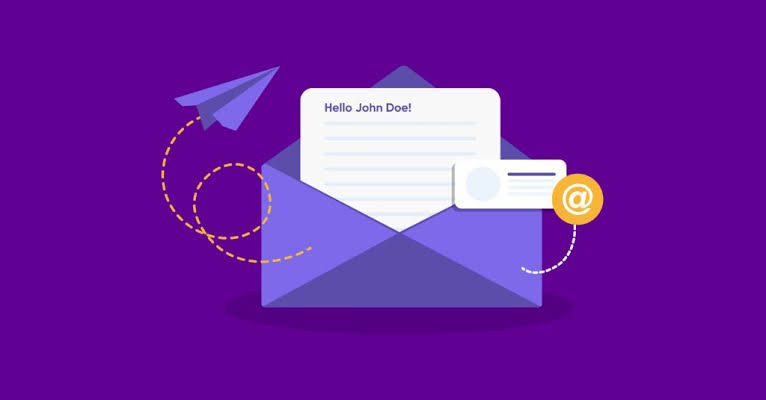Discover the vital role of personalization in email marketing. Learn how tailored content enhances engagement, improves customer experience, and drives conversions. Explore best practices and the future of personalized email strategies in a dynamic digital landscape.
The Importance of Customization in Email Marketing
In todays realm of marketing email stands out as a powerful tool, for connecting with customers. Yet amidst the flood of emails that people receive every day making an impression in their inbox poses a challenge. Customization has emerged as a strategy to boost the effectiveness of email marketing by building stronger bonds with audiences and driving interactions. This exploration delves into the significance of personalization in email marketing its advantages best practices and the future of tailored email approaches.
Grasping Customization in Email Marketing
Customization in email marketing entails tailoring content to suit the preferences behaviors and needs of subscribers. This can involve using a recipients name in the subject line or suggesting products based on previous purchases or browsing history. The aim is to craft a relevant and captivating experience that resonates with each recipient ultimately leading to higher open rates, click through rates and conversions.
With the rise of platforms such as Netflix, Amazon and Spotify consumers are getting used to tailored experiences in their daily lives. This growing preference for customization is now extending to email interactions where people anticipate a similar level of personalization. As a result brands must prioritize personalization to stay relevant and build lasting customer loyalty.
The Benefits of Personalization
The benefits of personalized email marketing are significant and impactful. One key advantage is increased engagement. Emails tailored to a recipients preferences and behaviors see higher open and click through rates compared to generic ones. For example personalized subject lines can boost open rates by up to 26% showcasing the effectiveness of customizing content for individuals.
Another important benefit is an improved customer experience. When subscribers receive emails that cater to their specific interests or needs they feel appreciated and understood. This positive interaction can create a bond with the brand enhancing customer loyalty and encouraging repeat business.
Additionally personalization can result in conversion rates. By providing product suggestions and relevant content businesses can effectively guide subscribers, along their journey. For instance a clothing retailer might send tailored recommendations based on a customers previous purchases, thereby increasing the chances of a sale.
Moreover personalization enables brands to reach out to their audience, effectively. By gathering insights into customer likes and actions companies can craft focused campaigns that resonate with groups of people enhancing the relevance and effectiveness of their email outreach.
To make the most out of personalization in email marketing businesses should follow guidelines. A key step is to gather and use customer information. This could involve details such, as age and gender as well as past purchases, online browsing habits and how customers interact with emails. By leveraging this data companies can gain insights into their customers preferences and adjust their email content accordingly.
Segmentation plays a role, in effective personalization. By categorizing an email list into groups based on criteria like buying habits, location or level of interaction brands can tailor messages to resonate with each group. For instance a travel company could segment its audience according to preferences and offer customized travel deals and suggestions that align with each groups interests.
Dynamic content also serves as a powerful tool, for personalization. This involves crafting emails that adapt based on the recipients information. For example a cosmetics brand might include tailored product suggestions based on a customers past purchases or skin type making the email more relevant and captivating.
Timing is another crucial factor, in personalized email marketing. Sending emails at moments can greatly influence engagement. Companies can leverage data analysis to identify when recipients are most likely to engage with their emails ensuring that content reaches them when they are most open to it.
Testing and optimization play a role, in enhancing personalization strategies. Marketers should consistently experiment with methods of personalization by changing subject lines, content formats and offers to see what resonates most with their audience. By examining metrics businesses can fine tune their campaigns for improved outcomes.
Looking ahead at the future.
In email marketing as technology advances the personalization in email marketing is poised to become more advanced. The integration of intelligence (AI) and machine learning into email marketing approaches is on the rise. This allows brands to analyze amounts of data to better predict customer behavior and preferences. These technologies can streamline the personalization process making it easier for businesses to deliver content on a larger scale.
Moreover the utilization of analytics will provide marketers with insights, into understanding customer behavior. This insight can lead to targeted segmentation strategies allowing for tailored campaigns that address individual preferences in time and improve overall customer satisfaction.
Furthermore privacy issues and data regulations will play a role in shaping the approach to personalization. Companies need to find a way to balance offering experiences while respecting consumer privacy. Being transparent about data collection methods and clearly communicating how customer information is used will be crucial, for building trust and sustaining customer relationships.
In Conclusion
In the realm of email marketing personalization is key. It opens doors, for boosting engagement enhancing customer satisfaction and increasing conversion rates. Businesses can craft tailored email campaigns that truly connect with their subscribers by utilizing customer data, segmenting their audience and following best practices. With technology progressing and consumer demands shifting the future of email marketing personalization looks promising and inventive. Adapting to these changes will empower brands to build bonds with their audiences and succeed in the competitive online environment.
